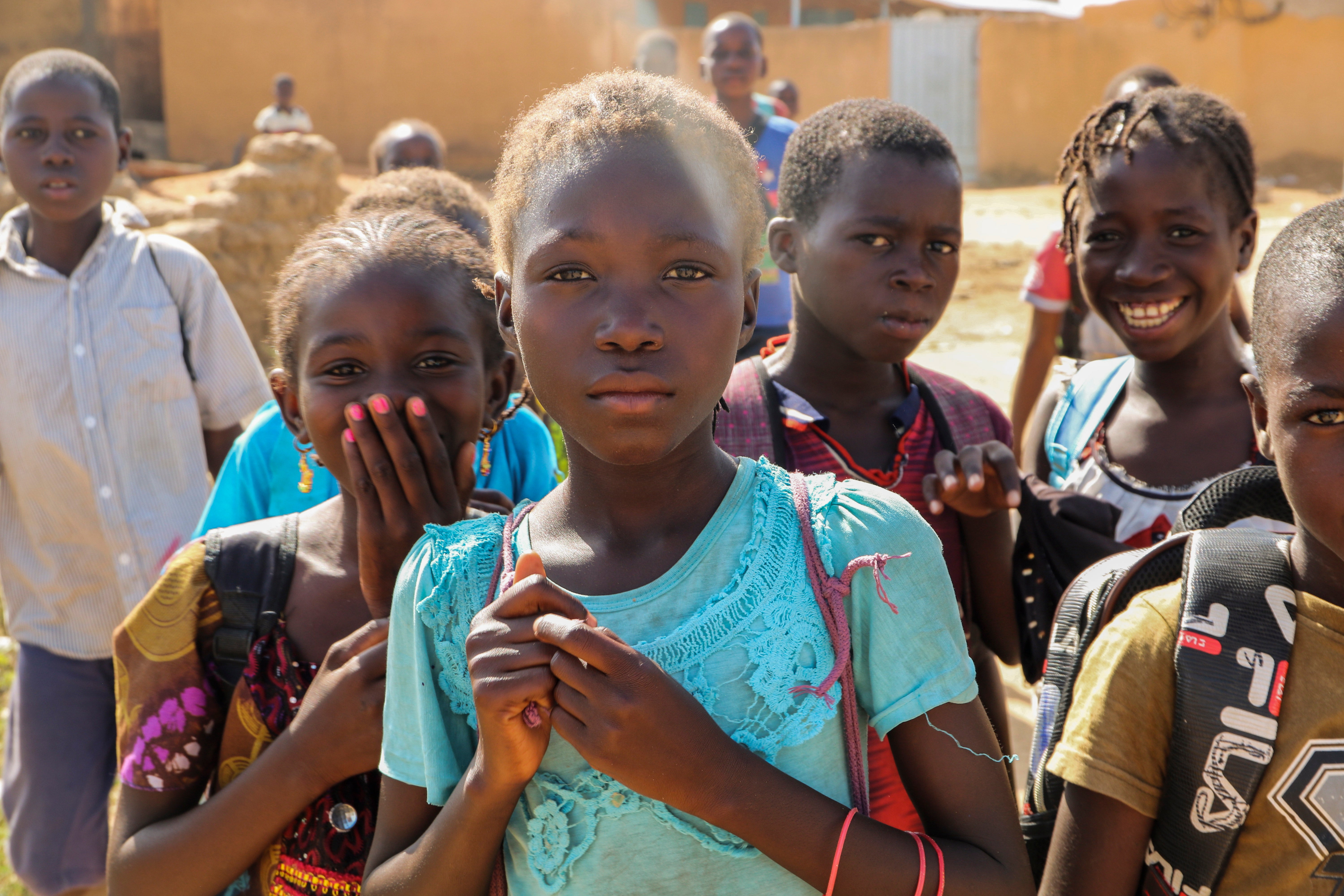Students in Burkina Faso fear extremists more than COVID-19
Children returning to school in Burkina Faso’s volatile Sahel region have to practice safety drills to prepare for potential jihadist attacks that have ravaged the West African nation, killing more than 2,000 people this year

Balkissa Barro’s been waiting for months to go back to school, but now that she has, the 10-year-old fears classes might once again stop.
Children returning to school in Burkina Faso’s volatile Sahel region have to practice safety drills to prepare for potential jihadist attacks that have ravaged the West African nation, killing more than 2,000 people this year. For Barro, the simulation of dropping to the ground and hiding under desks brings up memories of when gunmen stormed her village last year and killed seven relatives, forcing her family to flee.
“I’m afraid of being chased away from school,” said Barro as she slung a bag on her back and walked hesitantly to class in Dori town, where she now lives.
In Burkina Faso, worries over the COVID-19 pandemic come second to threats of attacks by extremists linked to al-Qaida and the Islamic State group.
More than 5 million children have been affected by school closures in the country due to coronavirus and violence, according to the U.N. Even as schools began to reopen in October, many remained shut due to insecurity, especially in hard-hit regions like the Sahel, the epicenter of the crisis.
Some 65% of the region’s more than 1,000 schools are closed, according to the U.N, and those that are functioning lack the resources to open safely.
President Roch Marc Christian Kabore, who has been declared the winner of last week’s election and will serve another five years, has promised that his next term would focus on empowering women and youth.
On a visit to Dori last month, one of the last safe havens in the region, educators told The Associated Press that the number of students in class had doubled due to the influx of internally displaced people, putting the teacher to student ratio at one to 100 children.
Physical distancing is impossible. Students sit crammed in makeshift tented classrooms, poking their heads through the cracks for fresh air.
While the government earlier this year said it was procuring 12 million masks and soap for students, teachers in Dori said they have not received anything. At Wendou school, 1,400 children use 14 hand-washing stations and no one has masks, said Dofiko Kone, the headmaster.
But, like the students, he’s more concerned about the violence than the pandemic.
“It is really difficult for children, because there are children who saw their parents killed in front of them, there are children who ran away and couldn’t even take anything with them, they have nothing to eat, there are children who are here without families,” he said.
Humanitarians warn that the combination of overcrowded and shuttered schools is shrinking available safe spaces for children. Organizations need to find new ways of teaching in emergencies, so that children can “get a foot in the door before it shuts on their future," said Tom Peyre-Costa, spokesman for the Norwegian Refugee Council.
UNICEF launched educational radio programs and online teaching to reach children unable to attend class, said Hamadou Diallo, head of education for the group in Dori. UNICEF is also providing tents, desks and school materials, but it’s short 75% of this year’s funding, or some $72 million dollars.
Education in Burkina Faso has been under attack since violence engulfed the country after the ouster of long time President Blaise Compaore in 2014, which left a security vacuum. Human Rights Watch documented more than 120 attacks and threats against students, teachers and schools by Islamist groups opposing the country’s secular curriculum between 2017 and 2020, according to a report in May.
At least 13 schools were burned in Tansarga commune in the east in July and September, and more than 40% of schools in the Sahel’s Oudalan province were destroyed, according to an October report from ACAPS, a humanitarian analysis organization.
While struggling families in the Sahel are happy their children can continue learning, many still can’t shelter or feed them.
Hama Ousseni Diallo’s been living in a makeshift displacement site on the outskirts of Dori since he was chased from his village by gunmen one year ago. When the pandemic hit, he sent six of his children — the youngest was 8 — to work in a restaurant so they wouldn’t starve because they were no longer being fed at school, he said.
Although they’ve now returned to class, school meals haven’t yet started and the little support he gets from aid groups is not enough to sustain them.
“The children go to school but when they come back ... there is no food, there is no place to sleep,” he said.
Bookmark popover
Removed from bookmarks